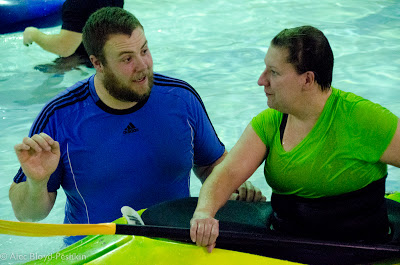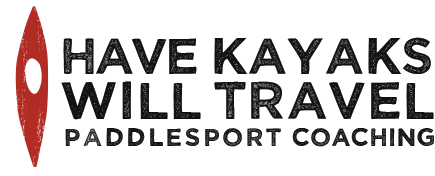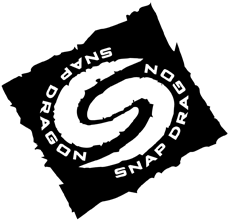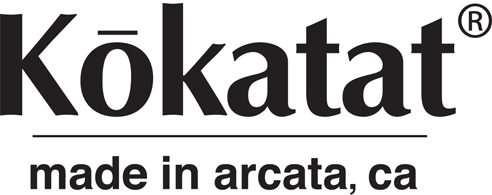 |
We recently posted a request to a local paddle club listerv seeking five “guinea pig” students for a coaching update we’re helping run. Within two days, we had more than a dozen volunteers who were eager for one hour of free rolling instruction. We accepted the first five, and told all of them about an upcoming three-week bracing and rolling class at the same location. So far, none of them has signed up.
We were struck by the fact that all of the respondents mentioned their frustration at having an unreliable roll and acknowledged their need for instruction, but none was interested in signing up for an inexpensive, three-session course.
What is it about “free” that induces people to spend time and gas, while even a modest fee discourages them? And more importantly, why do so many people think that paddling instruction should be free?
We can hardly begin to calculate what we’ve spent over the years on training and certifications, let alone the cost of the gear and travel that enabled us to develop as coaches and paddlers. We’ve put a lot of time and money into kayaking, and we plan to spend more, because we value the sport and what it has given us. All the coaches we respect most, including our mentors, are also committed to ongoing training.
Obviously, we aren’t in this for the money. Coaching is tremendously rewarding in other ways. We get to introduce people to a sport we love, figure out how to motivate and coach them, and watch them progress. We get to dream up new games and activities, explore new ideas and techniques, and share what we learn with others. Like any passion, coaching becomes a microcosm and metaphor for everything else in our lives. So it’s baffling when others don’t see its value.
To be fair, we don’t have any trouble filling our courses, and the people who do enroll demonstrate their appreciation for paid instruction. But what about all the people who publicly state their desire to improve but won’t pay for lessons? Why do they think instruction should be free?








Hey Sharon and Alec!
People may be drawing an unconscious comparison between your classes and something that’s not even really comparable. Sometimes getting someone to rescind a statement that your product is too expensive is as simple as asking them what they’re comparing it to.
Interesting. I break even after gas (driving to Madison), cost of teaching for free and symposiums and taxes. I do it because I love it. Still, I have no objection to someone making an actual profit from their hard earned craft when it is taught well (as I know you folks do). A whiskey company once dropped the cost of their product and sales fell like a rock. I guess the snob appeal wasn’t there. Maybe what is said in the ad is important to perceived value by potential students.
Lessons are totally worth it, but people are loath to pay because it isn’t essential. They have already made a significant outlay in equipment, and they do not *need* lessons to paddle, or to try to improve. They can self-teach, or pick up free pointers from companions and poolmates. They do perceive value, which is why they are eager to take advantage of a free offer. Much as if you were offering massages — everyone would jump at the chance for a freebie, but how many would pay for a package of three? Aren’t they worth it? Yes, but…
I’ve paid for lessons and symposia, and I’ve received tons of invaluable free instruction (including from you). I paid lots to train as an instructor, and I’ve yet to make more than $50 in a year. I give my knowledge freely, and I don’t feel I’ve yet come close to repaying the free tutelage I’ve been lucky to receive.
But as I said at the top, paid lessons are totally worth it…
There is nothing I enjoy more than figuring something out on my own. The value of a lesson is unquestionable, but what it is worth paying for will vary greatly depending on who you ask.
I think the reasons people don’t sign up for lessons is as varied as the people themselves — and not necessarily paid vs free. Sometimes, it’s easier to make a commitment to a one-day class — paid or free — than a 3-week commitment. For others, it’s the “fun” of rolling as opposed to something perceived as “work” — such as bracing or rescues. And then there are those who, for reasons I don’t fully understand, don’t see the value in paying for lessons when they think they can teach themselves. Ironically, these are often the same people who don’t understand why I pay for training and teach for free at symposiums.
Great thoughts, everyone. People certainly vary in their willingness to pay for things–even things they value. But unless we invest in paddlesports, we can’t have top-tier coaches who advance the sport and set a high bar for instruction. And often, as Silbs said, people value things more if they pay for them. There’s definitely a time and place for volunteering, and we’ve done a good amount of that, too. But we have to be careful about giving so much away that we devalue what we’re providing.
Maybe people figure the nature of our community makes learning and advancing free to most. We’re a very friendly and helpful community by and large. How many times have you been doing something on a trip and someone paddles up and says “hey I noticed you’re doing ABC when you should really try XYZ”. You try the new method and get some immediate feedback. Alec did this for me last year on the Vermilion.
I wholeheartedly agree that paying for proper instruction is often worth it’s weight in carbon-fiber… I just wonder if the ‘hanging in the eddy method’ is how many people are learning every time they’re on the water anyway?